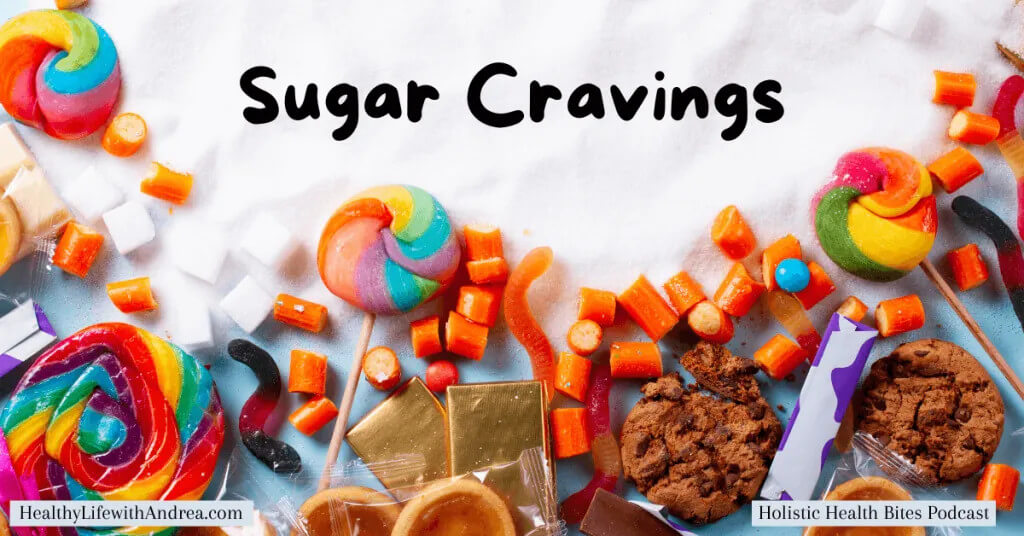
Project9 Life podcast featuring Functional Nutritionist Andrea Nicholson discussing personal development hacks and tips for living your best life.
Read more... Functional Nutritionist Andrea Nicholson provides strategies for overcoming sugar cravings and balancing blood sugar levels. Sugar cravings can be triggered by hormonal imbalances, low blood sugar, gut microbial imbalances, chronic stress, and poor sleep quality. To combat cravings, it's important to build meals with adequate protein and healthy fats, stay hydrated, and choose whole, unprocessed foods. Balancing blood sugar levels can be achieved through regular exercise, getting enough sleep, and practicing healthy eating habits. The post emphasizes that overcoming sugar cravings and balancing blood sugar is a journey, but with consistency, individuals can reduce cravings and support their overall metabolic health.
Functional Nutritionist Andrea Nicholson provides strategies for overcoming sugar cravings and balancing blood sugar levels. Sugar cravings can be triggered by hormonal imbalances, low blood sugar, gut microbial imbalances, chronic stress, and poor sleep quality. To combat cravings, it's important to build meals with adequate protein and healthy fats, stay hydrated, and choose whole, unprocessed foods. Balancing blood sugar levels can be achieved through regular exercise, getting enough sleep, and practicing healthy eating habits. The post emphasizes that overcoming sugar cravings and balancing blood sugar is a journey, but with consistency, individuals can reduce cravings and support their overall metabolic health. Functional Nutritionist Andrea Nicholson explains the importance of customizing your eating plan for optimal metabolic health and weight maintenance. She highlights the need to identify your personal carbohydrate threshold, determine meal frequency and timing, and consider other factors that play a role in personalizing nutrition. Nicholson suggests using tools like continuous glucose monitors to monitor how your body responds to different types and amounts of carbohydrates. She also discusses the benefits of adhering to natural energy fluctuations and digestive capacity when it comes to meal timing, as well as finding the right balance of macronutrients for your specific needs. Nicholson recommends working with a professional nutritionist to create a personalized eating plan and suggests tracking your foods, schedule, and symptoms temporarily to fine-tune your approach. The article concludes by emphasizing the importance of adapting your eating plan as your needs and goals evolve.
Functional Nutritionist Andrea Nicholson explains the importance of customizing your eating plan for optimal metabolic health and weight maintenance. She highlights the need to identify your personal carbohydrate threshold, determine meal frequency and timing, and consider other factors that play a role in personalizing nutrition. Nicholson suggests using tools like continuous glucose monitors to monitor how your body responds to different types and amounts of carbohydrates. She also discusses the benefits of adhering to natural energy fluctuations and digestive capacity when it comes to meal timing, as well as finding the right balance of macronutrients for your specific needs. Nicholson recommends working with a professional nutritionist to create a personalized eating plan and suggests tracking your foods, schedule, and symptoms temporarily to fine-tune your approach. The article concludes by emphasizing the importance of adapting your eating plan as your needs and goals evolve.
Functional Nutritionist Andrea Nicholson explores the important role of probiotics in promoting gut health and supporting immune function. Probiotics are live microorganisms that offer numerous health benefits, often referred to as "good bacteria." They come in various strains, each with unique benefits such as improving digestion and enhancing nutrient absorption.
Our gut and immune system have a close relationship, with around 70% of our immune system residing in the gut. Probiotics, like lactobacillus and bifidobacterium, play a vital role in regulating and strengthening our immune response by stimulating antibody production. By maintaining a healthy balance of beneficial bacteria and keeping opportunistic bacteria in check, we can support a robust immune system that effectively defends against pathogens.
When choosing probiotics, it's important to look for strains that have been studied for their immune-supporting properties, such as Lactobacillus rhamnosus, Bifidobacterium bifidum, or Saccharomyces boulardii. These strains can be found in probiotic supplements or naturally in fermented foods. Incorporating probiotics into a healthy lifestyle, along with proper diet, exercise, stress management, and hydration, can help maintain optimal gut health and strengthen the body's defenses.
However, it's essential to consult a healthcare provider before starting probiotics, especially for individuals with compromised immune systems or certain medical conditions. Additionally, quality assurance is crucial when it comes to choosing probiotic products, as many may not contain what they claim. Finding independently tested and trusted products is recommended to ensure their efficacy.
Read more...
A recent study compared the effectiveness of the Very Low Carbohydrate and DASH diets for overweight or obese adults with hypertension and prediabetes or type 2 diabetes. The results showed that the Very Low Carbohydrate diet was more beneficial in terms of reducing systolic blood pressure, hemoglobin A1c levels, and weight loss compared to the DASH diet. Participants on the Very Low Carbohydrate diet also experienced a greater reduction in blood pressure medication and blood sugar medication usage. Interestingly, the study found that additional support on mindfulness and emotional eating did not significantly impact the results of either diet. Overall, the study suggests that the Very Low Carbohydrate diet may be a more effective nutritional strategy for individuals with these health conditions.
Read more...















